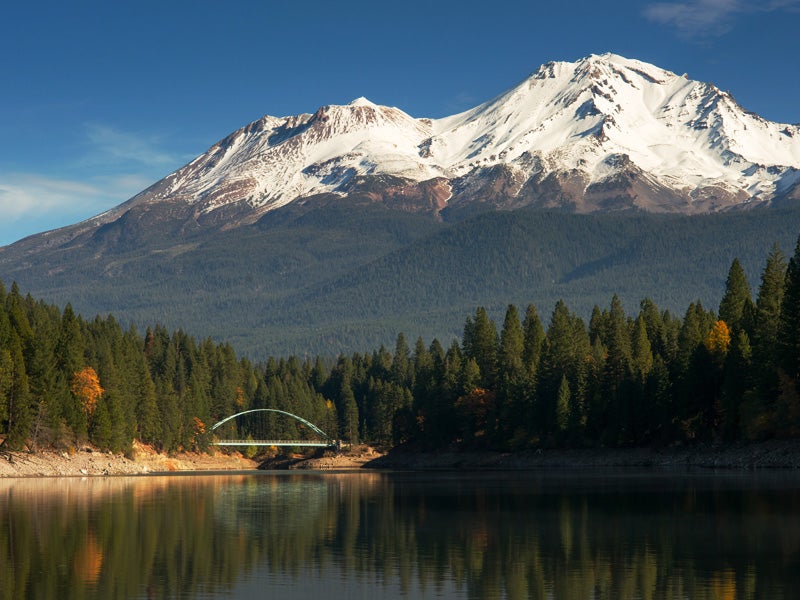California Court Blocks Move to Let Farmers Drain Salmon Streams
The Siskiyou County Farm Bureau argued farmers could siphon water from rivers and streams with impunity—until the court of appeal stepped in to protect the county’s endangered fish.

This page was published 10 years ago. Find the latest on Earthjustice’s work.
Last week, the California Court of Appeal overturned a superior court ruling from Siskiyou County in northern California in a decision that supports a concept so simple and straightforward that the court was able to sum it up with one wry quote from the Dr. Seuss book Horton Hatches the Egg.
“I meant what I said, and I said what I meant,” concluded the court, echoing the words of Horton, an elephant in the story who is determined to keep his word to sit on an egg while the mother bird is away.
Like Horton, the court found that the California Fish and Game Code meant what it said when it stated that anyone who wants to divert large amounts water from a stream must notify the California Department of Fish and Game of its plan.
The court’s decision overturned a previous ruling, whereby a local superior court judge had handed local farmers a free pass to divert water from the county’s rivers and streams without considering the harmful effects on endangered salmon and other native fish.
The Siskiyou County Farm Bureau’s case against the state agency offered a tortured argument by claiming that a part of the California Fish and Game Code does not, in fact, mean what it says. Cobbling together snippets of old legislative reports and selective quotes from agency memos, the farm bureau argued that accepting the code’s language at face value would lead to “absurd results.” The bureau claimed the law was meant only to apply to diversions that require physically changing the streambed, not to those that just involve pumping out water.
Earthjustice filed a friend-of-the-court brief on behalf of the Karuk Tribe, the Pacific Coast Federation of Fishermen’s Associations, and Klamath Riverkeeper, each a staunch advocate for healthy rivers and the recovery of the region’s once-abundant salmon runs.
Alas, the local superior court judge, who held a lengthy hearing to determine if there was “latent ambiguity” in the language of the code, was able to tease out ambiguity in the perfectly clear language of the statute. She ruled that it was necessary to alter the streambed in some way before the notification requirement kicked in. She also decided that the fish and game agency could not force farmers who planned to pump large amounts water out of Siskiyou County streams to submit their pumping plans for review.
Not coincidentally, Siskiyou is one of several counties on either side of the California-Oregon border with a strong anti-government, anti-regulation history. The areas even attempted to secede from the two states in the 1940s and establish the State of Jefferson. In that dreamed-for state, apparently everyone would have been free to do whatever they darn-well pleased. Secession failed, but the attitudes behind it persist.
The state department appealed, and Earthjustice again filed a friend-of-the-court brief on behalf of our clients and in support of the state. Fortunately, the 3rd Division of the California Court of Appeal, which sits in Sacramento, couldn’t be home-teamed by the Siskiyou County Farm Bureau.
The three-judge panel ruled unanimously for the state. The appellate court went further and carefully reviewed the documents the farm bureau had offered. The court found no “latent ambiguity” about what the statute meant and that following the plain language of the reporting requirement didn’t produce any “absurd results.”
There’s little joy in certain corners of Jefferson over this ruling. But for those who care about the health of California’s native fish and the streams they inhabit, it’s refreshing to see our appellate courts rein in local courts that have fallen into the pocket of special interests.
The California Regional Office fights for the rights of all to a healthy environment regardless of where in the state they live; we fight to protect the magnificent natural spaces and wildlife found in California; and we fight to transition California to a zero-emissions future where cars, trucks, buildings, and power plants run on clean energy, not fossil fuels.